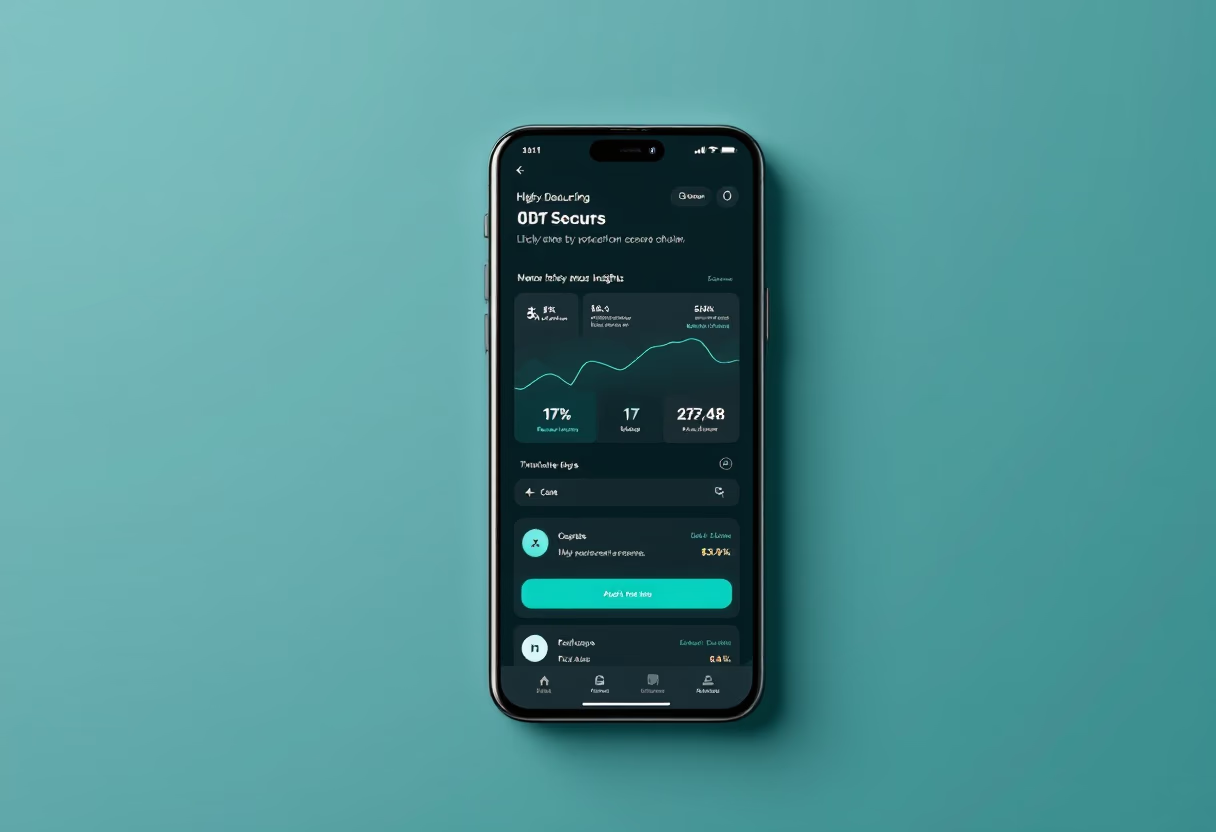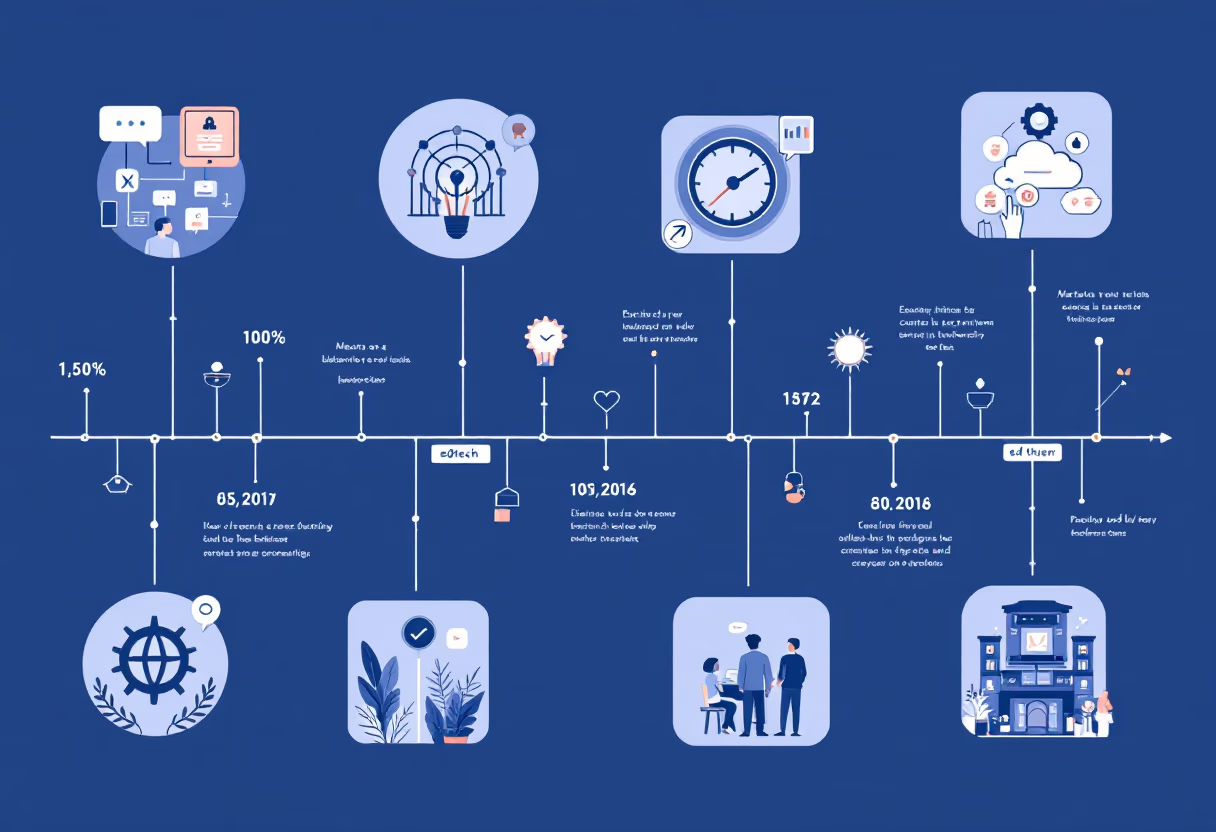A Revolutionary Approach to Mindful Drinking Through Community, Science, and Intrinsic Motivation
In an era where nearly half of Americans plan to drink less alcohol [1], the traditional approach to alcohol moderation—characterized by shame, isolation, and all-or-nothing thinking—is failing to meet the needs of the growing "sober curious" movement. I'm Good represents a paradigm shift in alcohol moderation technology, combining cutting-edge behavioral science with team-based support and thoughtful gamification to create sustainable, intrinsic motivation for healthier drinking habits.
This comprehensive analysis presents the scientific foundation for I'm Good's innovative approach, drawing from the latest research in peer support effectiveness, gamification psychology, and intrinsic motivation theory. Unlike existing solutions that focus primarily on individual tracking or complete abstinence, I'm Good addresses the critical gap in the market for team-supported, moderation-focused interventions that respect users' autonomy while providing the social accountability proven essential for lasting behavior change.
The evidence is compelling: peer support increases abstinence rates by 27% and treatment satisfaction by 32% [2], while gamification interventions show significant effectiveness in health behavior change with moderate to large effect sizes [3]. Most importantly, intrinsic motivation— the internal drive for personal growth and autonomy—has been proven more sustainable than external rewards for long-term behavior change [4]. I'm Good uniquely combines these three evidence-based approaches into a cohesive platform designed for the 65% of Generation Z and 49% of all Americans who want to drink less without the stigma of traditional recovery programs [1].
Traditional alcohol moderation approaches suffer from a fundamental flaw: they isolate individuals at the moment they most need support. Current market leaders like Reframe ($100+ annually) and Sunnyside focus primarily on individual tracking and one-on-one coaching, missing the powerful psychological benefits of peer support and shared accountability [5]. This isolation is particularly problematic given that alcohol consumption is inherently social, and changing drinking habits requires navigating complex social situations where peer support becomes crucial.
Research from the American Psychological Association reveals that alcohol moderation movements are most effective when they "provide support to cut back on drinking, especially for people who feel uncomfortable with their consumption" [6]. Yet most existing apps fail to address the social dimension of drinking behavior, leaving users to navigate challenging social situations alone.
Perhaps more damaging is the pervasive shame-based approach that characterizes much of the alcohol moderation landscape. Traditional recovery models, while effective for those with severe alcohol use disorders, create unnecessary barriers for the growing population of "sober curious" individuals who simply want to drink less.
Current approaches often fall into the trap of binary thinking: either complete sobriety or problematic drinking. This false dichotomy fails to serve the 49% of Americans who want to drink less but not necessarily quit entirely [1]. The sober curious movement represents a fundamental shift in how people think about alcohol—from abstinence versus excess to mindful, intentional consumption aligned with personal values and health goals.
Dr. Vivek Murthy's recent advisory on alcohol and cancer risk has further complicated this landscape, with 65% of 18-34 year-olds now viewing alcohol as bad for health [8]. Yet only 18% of Americans planned to drink less after the surgeon general's warning, suggesting that fear-based messaging alone is insufficient to drive behavior change [1]. What's needed is a positive, empowering approach that helps people align their drinking habits with their values and goals.
The human brain is fundamentally wired for social connection, and this neurobiological reality has profound implications for behavior change interventions. Recent neuroscience research reveals that social support activates the brain’s reward systems in ways that enhance motivation and reduce stress responses associated with behavior change [9]. When individuals feel supported by peers who understand their challenges, the brain releases oxytocin and dopamine, creating positive reinforcement loops that make new behaviors more likely to stick.
This neurobiological foundation explains why peer support interventions consistently outperform individual approaches across multiple health domains. In addiction recovery specifically, peer support has been shown to increase abstinence rates by 27% and treatment satisfaction by 32% compared to traditional individual interventions [2]. These effects are not merely statistical artifacts—they reflect fundamental changes in how the brain processes motivation and reward when social support is present.
Peer support operates through several distinct psychological mechanisms that make it particularly effective for alcohol moderation:
Social Modeling and Vicarious Learning: When individuals observe peers successfully navigating similar challenges, they develop increased self-efficacy and learn specific strategies for behavior change. This vicarious learning is particularly powerful because it provides concrete examples of how moderation can be achieved in real-world situations.
Accountability and Social Commitment: Public commitment to goals significantly increases follow-through rates due to the psychological principle of consistency. When individuals make commitments to their team members, they experience increased motivation to maintain those commitments to preserve their social identity and relationships.
Emotional Support and Validation: Perhaps most importantly, peer support provides emotional validation that reduces the shame and isolation often associated with alcohol concerns. This emotional support is crucial because shame is one of the strongest predictors of relapse and treatment dropout in addiction recovery [10].
Shared Experience and Normalization: Peer support helps normalize the experience of wanting to drink less, countering cultural messages that position heavy drinking as normal or desirable. This normalization is particularly important for the sober curious population, who may feel isolated in their desire to moderate consumption.
A comprehensive 2025 study by Casa Tondem found that peer support in substance use recovery provides multiple evidence-based benefits [2]:
These findings are particularly relevant for alcohol moderation because they demonstrate that peer support benefits extend beyond clinical populations to include individuals seeking to modify their relationship with alcohol for health and wellness reasons.
While traditional peer support typically involves one-on-one relationships or large group settings, I’m Good’s team-based approach offers unique advantages. Small teams (3–6 members) provide optimal conditions for social support while maintaining intimacy and accountability. Research in group dynamics shows that teams of this size maximize both individual attention and group cohesion, creating ideal conditions for sustained behavior change [11].
Team-based approaches also leverage competitive elements in healthy ways. Rather than competing against each other, team members compete together against their previous patterns, creating a collaborative rather than adversarial dynamic. This approach aligns with research showing that cooperative goal structures are more effective than competitive ones for complex behavior change [12].
Gamification—the application of game design elements in non-game contexts—has emerged as a powerful tool for health behavior change. However, not all gamification is created equal. A comprehensive systematic review and meta-analysis published in September 2024 found that gamification interventions show “significant effectiveness in health behavior change” with moderate to large effect sizes [3]. The key lies in understanding which game elements work best for which populations and behaviors.
The most effective gamification approaches focus on intrinsic rather than extrinsic motivators. While points, badges, and leaderboards can provide initial engagement, sustainable behavior change requires tapping into deeper psychological needs for autonomy, competence, and relatedness—the core components of Self-Determination Theory [13].
Recent research has identified several key principles that distinguish effective gamification from superficial “pointsification”:
Effective gamification provides appropriately challenging goals that evolve with user progress. This aligns with the psychological principle of flow, where individuals experience optimal engagement when challenges match their skill level [14]. For alcohol moderation, this might involve gradually increasing alcohol-free days or reducing consumption in manageable increments.
The most effective gamified interventions preserve user autonomy by providing meaningful choices about goals, strategies, and participation levels. This is particularly important for alcohol moderation, where individuals need to feel in control of their choices rather than controlled by external systems [15].
Gamification works best when it facilitates social connection and recognition from peers. This aligns with the fundamental human need for belonging and explains why team-based gamification often outperforms individual approaches [16].
Immediate, clear feedback about progress helps maintain motivation and provides opportunities for course correction. Visual progress indicators tap into the brain’s reward systems while providing concrete evidence of achievement [17].
While gamification can be powerful, it can also backfire if implemented poorly. Common pitfalls include:
Research shows that excessive external rewards can actually undermine intrinsic motivation, a phenomenon known as the overjustification effect [18]. Effective gamification enhances rather than replaces internal motivation.
Alcohol moderation is a serious health behavior that requires respectful treatment. Gamification elements must enhance rather than trivialize the importance of the behavior change process.
Competitive elements can be motivating but may also create stress or shame for individuals who struggle. The most effective approaches focus on personal progress and team collaboration rather than individual competition.
I’m Good’s gamification strategy carefully balances engagement with respect for the seriousness of alcohol moderation. Rather than focusing on points or badges, the platform emphasizes:
The distinction between intrinsic and extrinsic motivation is crucial for understanding why some behavior change interventions succeed while others fail. Intrinsic motivation arises from internal satisfaction, personal growth, and alignment with values, while extrinsic motivation depends on external rewards, punishments, or social pressure [19].
Research consistently shows that intrinsic motivation is more sustainable than extrinsic motivation for long-term behavior change. A comprehensive review published in 2024 found that “intrinsic motivation is often more sustainable than extrinsic motivation” and that “individuals who are intrinsically motivated are more likely to persist in their efforts, even in the absence of external rewards” [4].
This finding has profound implications for alcohol moderation interventions. While external motivators like legal requirements, health scares, or social pressure may initiate behavior change, lasting transformation requires developing internal reasons for change that align with personal values and goals.
Self-Determination Theory identifies three core psychological needs that fuel intrinsic motivation [20]:
Recent research specifically examining intrinsic versus extrinsic motivation in addiction recovery provides compelling evidence for the importance of internal drivers. A 2025 study by IKON Recovery Centers found that [21]:
The research concludes that “intrinsic motivation is essential for sustaining long-term recovery and fostering personal growth” while acknowledging that external motivators can be helpful in early stages [21]. This suggests that effective interventions should begin with external support while gradually building internal motivation.
Providing skills training and confidence-building experiences helps individuals feel capable of achieving their goals. This includes practical strategies for moderating alcohol consumption and navigating social situations.
Creating environments that encourage exploration, creativity, and connection—while respecting individual autonomy—is essential. This is where I’m Good’s team approach becomes particularly valuable.
Emphasizing the journey of growth and learning, rather than focusing solely on outcomes, helps maintain motivation even when progress is gradual or non-linear.
The alcohol moderation landscape is experiencing unprecedented transformation. What began as a niche movement has evolved into a mainstream cultural shift that is reshaping how Americans think about alcohol consumption. The statistics are striking: 49% of Americans plan to drink less in 2025, representing a 44% increase since 2023 [1]. This is not a temporary trend but a fundamental cultural shift driven by changing attitudes toward health, wellness, and intentional living.
Generation Z is leading this transformation, with 65% planning to drink less in 2025 and 39% adopting completely dry lifestyles [1]. This generation consumes one-third less beer and wine than previous generations and shows significantly higher rates of complete abstinence: 45% of 21+ Gen Z consumers have never consumed alcohol, compared to 36% of millennials and 32% of Gen X [22].
The shift is not merely about quantity but about quality and intentionality. As one industry expert noted, “It really feels more like a genuine cultural shift based, not on any morality of alcohol and drinking, but really on a sense that people want a healthy lifestyle” [1]. This represents a move away from shame-based approaches toward positive, health-focused motivations.
Underlying this behavioral shift is a fundamental change in how Americans perceive alcohol’s health effects. Gallup research from 2024 reveals that 65% of 18–34 year-olds now say alcohol is bad for health, compared to just 37% of 35–54 year-olds and 39% of those 55 and older [8]. Among young adults, 52% believe that even moderate drinking is bad for health, compared to 34% five years prior [23].
This generational divide in health perceptions creates both opportunities and challenges for alcohol moderation interventions. Younger users are more motivated by health benefits but may also be more skeptical of approaches that don’t align with their values around wellness and authenticity.
Understanding the user experience requires examining both the challenges that drive people to seek help and the emotional journey they experience during behavior change. Research and user testimonials reveal several consistent pain points that existing solutions often fail to address adequately.
Perhaps the most pervasive challenge is the sense of isolation that accompanies questioning one’s relationship with alcohol. In a culture where drinking is deeply embedded in social activities, professional networking, and stress relief, individuals who want to drink less often feel alone and judged.
Traditional recovery resources often assume that individuals want to quit drinking entirely, leaving those interested in moderation without appropriate support. This gap is particularly problematic for the sober curious population, who may feel that their concerns aren’t “serious enough” for traditional recovery programs but still need guidance and support.
Navigating social situations while moderating alcohol consumption presents ongoing challenges. Users report difficulty explaining their choices to friends and colleagues, fear of missing out on social connections, and pressure to drink in professional settings. These challenges require practical strategies and peer support from others who understand the experience.
Motivation for behavior change naturally fluctuates, and users need support systems that can help them navigate periods of low motivation or setbacks. Traditional approaches often treat lapses as failures rather than normal parts of the change process, creating additional shame and discouragement.
The evidence is compelling, the market is ready, and the technology is available. I’m Good represents a unique opportunity to lead the transformation of alcohol moderation support—creating a platform that combines the best of behavioral science with innovative technology to serve the growing population of individuals seeking to improve their relationship with alcohol.
The time for incremental improvements to existing approaches has passed. What’s needed now is a fundamental reimagining of how we support behavior change—one that recognizes the social nature of drinking, the importance of intrinsic motivation, and the power of technology to enhance rather than replace human connection.
I’m Good is positioned to lead this transformation, creating not just a successful business but a meaningful contribution to public health and individual wellbeing. The question is not whether the market is ready for this innovation, but whether we are ready to seize the opportunity to make a lasting difference in the lives of millions of people seeking to drink less and live more.
[1] Snider, M. (2025, January 21). Alcohol trends 2025: More Americans plan to drink less – or not
at all. USA Today. https://www.usatoday.com/story/money/2025/01/21/alcohol-trends-2025-
moderation-low-non-alcoholic-survey/77351695007/
[2] Casa Tondem. (2025, January 16). The power of peers in substance use recovery: A guide for
behavioral health providers. https://casatondemand.org/2025/01/16/the-power-of-peers-insubstance-
use-recovery-a-guide-for-behavioral-health-providers/
[3] Systematic review and meta-analysis on gamification effectiveness in health behavior change.
(2024, September). Open Public Health Journal, 17.
https://www.openpublichealthjournal.com/VOLUME/17/ELOCATOR/e18749445234806/FULLTEXT/
[4] SWEET Institute. (2024, September 5). Intrinsic motivation and behavior change.
https://sweetinstitute.com/intrinsic-motivation-and-behavior-change/
[5] Choosing Therapy. (2025, March 31). Best mindful drinking apps of 2025.
https://www.choosingtherapy.com/best-mindful-drinking-apps/
[6] American Psychological Association. (2025, January 1). 'Sober curiosity' destigmatizes the
desire not to drink. APA Monitor. https://www.apa.org/monitor/2025/01/sober-curious-alcoholmoderation
[7] Trustpilot. (2025). Sunnyside - Alcohol moderation app reviews.
https://uk.trustpilot.com/review/sunnyside.co
[8] Gallup. (2024, August 13). Alcohol consumption increasingly viewed as unhealthy in U.S.
https://news.gallup.com/poll/648413/alcohol-consumption-increasingly-viewed-unhealthy.aspx
[9] Fishbach, A., & Woolley, K. (2022). The structure of intrinsic motivation. Annual Review of
Organizational Psychology and Organizational Behavior, 9(1), 339-363.
[10] Morris, L. S., et al. (2022). On what motivates us: A detailed review of intrinsic v. extrinsic
motivation. Psychological Medicine, 52(10), 1801-1816.
[11] Bieg, S., Reindl, M., & Dresel, M. (2017). The relation between mastery goals and intrinsic
motivation among university students: A longitudinal study. Educational Psychology, 37(6), 666-
679.
[12] Meng, L., & Ma, Q. (2015). Live as we choose: The role of autonomy support in facilitating
intrinsic motivation. International Journal of Psychophysiology, 98(3), 441-447.
[13] Cho, H., & Chiu, W. (2021). The role of leisure centrality in university students' self-satisfaction
and academic intrinsic motivation. The Asia-Pacific Education Researcher, 30(2), 119-130.
[14] Condry, J., & Chambers, J. (2015). Intrinsic motivation and the process of learning. In The
hidden costs of reward (pp. 61-84). Psychology Press.
[15] Resnick, B. (2018). The relationship between resilience and motivation. In Resilience in aging:
Concepts, research, and outcomes (pp. 221-244).
[16] IKON Recovery Centers. (2025, January 29). Intrinsic vs extrinsic motivation in recovery.
https://www.ikonrecoverycenters.org/intrinsic-vs-extrinsic-motivation-in-recovery/
[17] National Institute on Alcohol Abuse and Alcoholism. (2024, Fall). Sober-curious young
Americans may be changing the conversation around alcohol. NIAAA Spectrum, 16(3).
https://www.niaaa.nih.gov/news-events/spectrum/volume-16-issue-3-fall-2024/sober-curiousyoung-
americans-may-be-changing-conversation-around-alcohol
[18] The Conversation. (2024, November 25). The rise of 'sober curiosity:' Why Gen Zers are
reducing their alcohol consumption. https://theconversation.com/the-rise-of-sober-curiositywhy-
gen-zers-are-reducing-their-alcohol-consumption-243775
[19] NCSolutions. (2025, January 21). Nearly half of Americans plan to drink less alcohol in 2025.
https://ncsolutions.com/press-and-media/americans-plan-to-drink-less-alcohol-in-2025/
[20] Newsweek. (2024, December 25). Millions of Americans consider themselves 'sober curious'
beyond Dry January. https://www.newsweek.com/2025/01/17/dry-january-2025-benefits-sobercurious-
movement-meaning-2005151.html
[21] Richmond Magazine. (2025, January 21). A movement of moderation.
https://richmondmagazine.com/life-style/health/alcohol-consumption/
[22] Nielsen IQ. (2025, January 7). 2024 beverage alcohol year in review.
https://nielseniq.com/global/en/insights/analysis/2025/2024-beverage-alcohol-year-in-review/
[23] Globe Newswire. (2025, March 20). Non-alcoholic spirits market to generate US$ 1.2 billion in
sales by 2034. https://www.globenewswire.com/newsrelease/
2025/03/20/3046547/32656/en/Non-alcoholic-Spirits-Market-to-Generate-US-1-2-Billionin-
Sales-by-2034-Expanding-at-a-7-4-CAGR-as-Consumer-Preferences-Shift-Analysis-Report-by-
TMR.html
[24] Fact.MR. (2025, April 26). Low-alcohol beverages market size, share & demand 2035.
https://www.factmr.com/report/low-alcohol-beverages-market
[25] Precedence Research. (2025, June 1). Functional drinks market size to climb USD 437.48 Bn
by 2034. https://www.precedenceresearch.com/functional-drinks-market
[26] Reddit. (2025, February 12). Success moderating? r/SoberCurious.
https://www.reddit.com/r/SoberCurious/comments/1intfcp/success_moderating/


Every skipped drink is a win for you—and your crew. Join a team, track your progress, and celebrate every small shift together. We’re building a movement where less is more, and every check-in counts toward something bigger. Ready to level up with your team?




Skip a drink, boost your team, and celebrate every small win together. Join the movement for positive change—one tap at a time.
